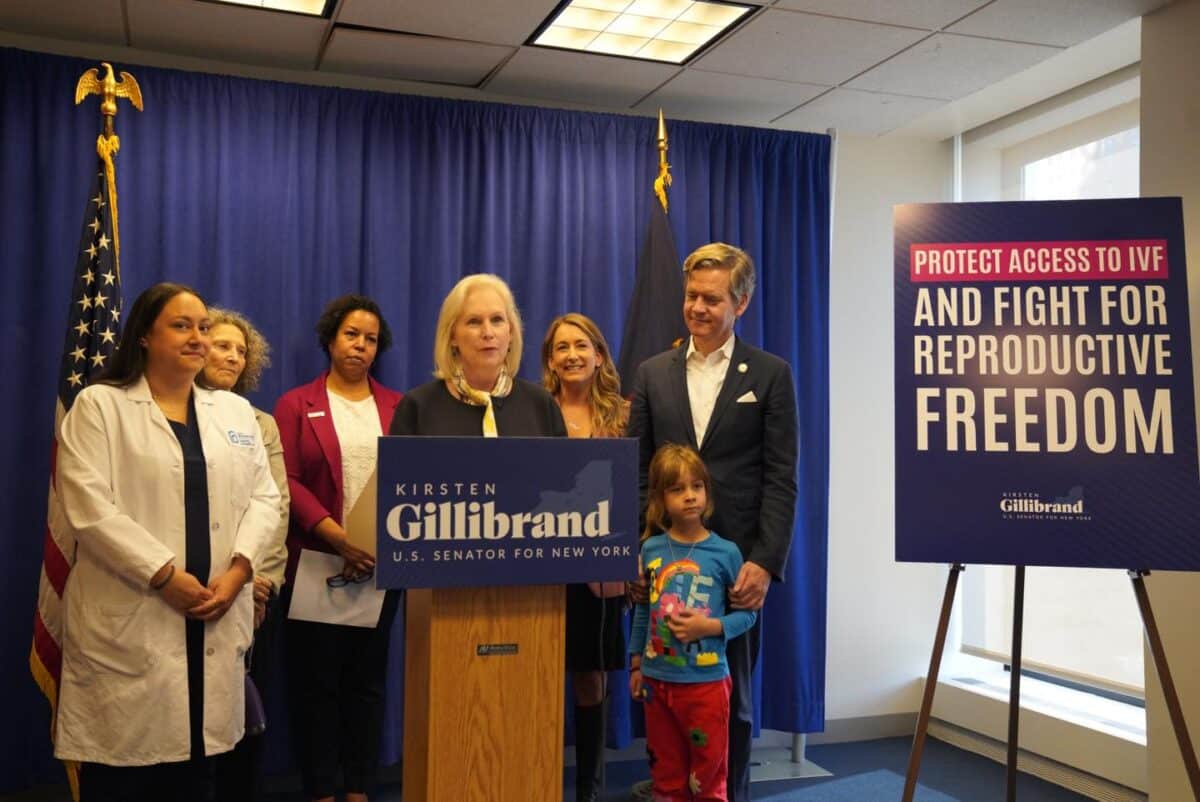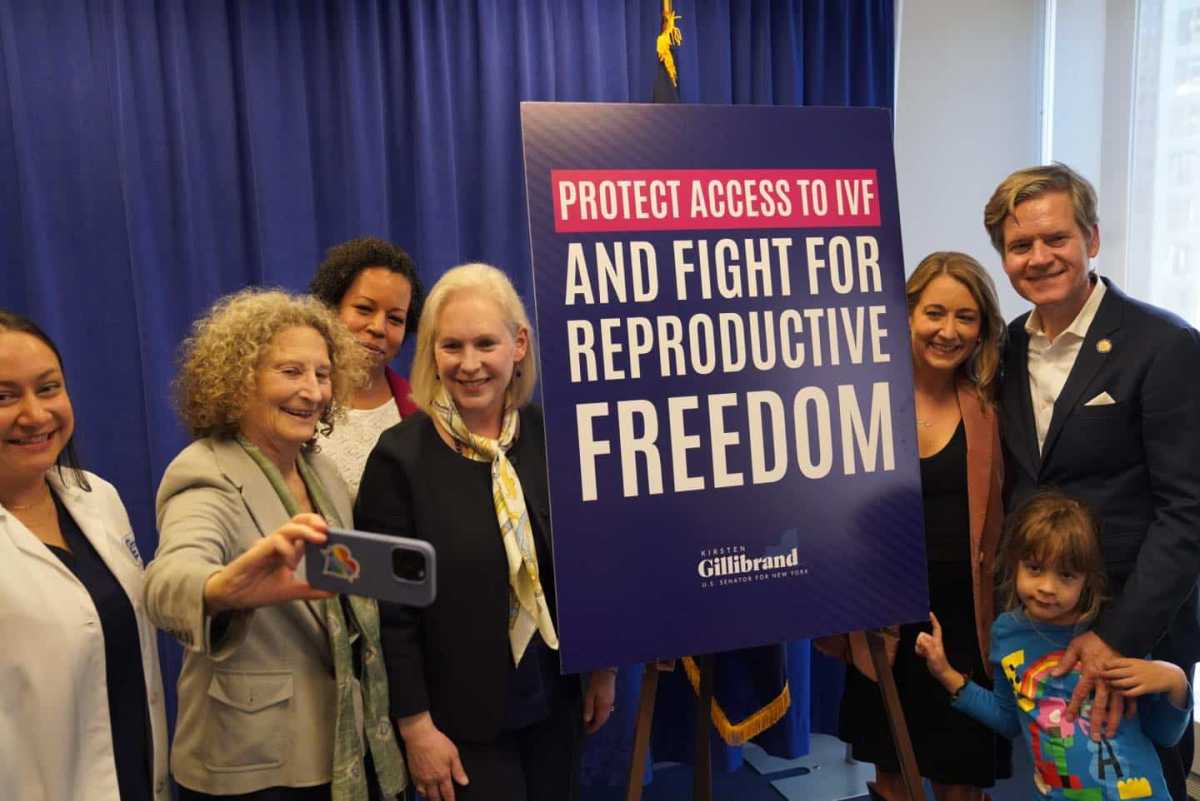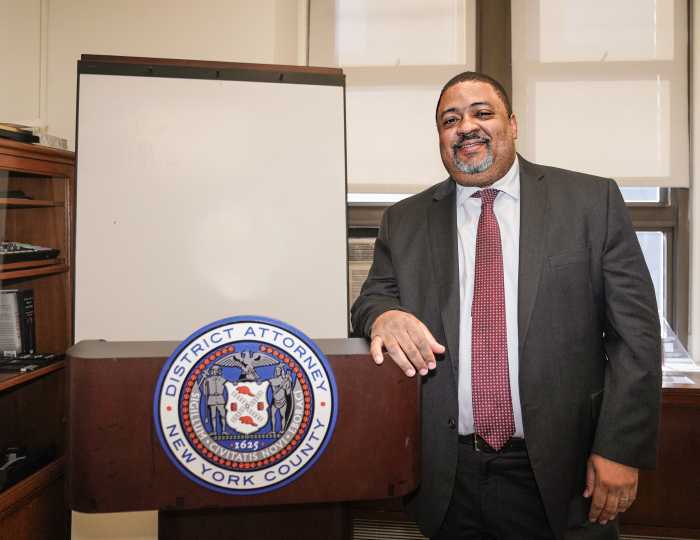The national push to protect in vitro fertilization (IVF) across America continued in Manhattan on Sunday.
U.S. Senator Kirsten Gillibrand, New York’s junior senator, called for passage of the Access to Family Building Act to protect IVF and other assisted reproductive technologies in the wake of an Alabama Supreme Court ruling that further endangers access to reproductive care in America.
IVF is typically used by couples trying to conceive who may be suffering from infertility issues.
During IVF treatments, additional embryos which are not used can be kept frozen by a fertility clinic for later usage if a couple chooses to conceive once more; this would spare mothers from having to undergo additional hormonal treatments and surgeries, according to Johns Hopkins University.
The Alabama court ruling, Gillibrand and other reproductive rights advocates say, threatens to outlaw IVF and deny couples their right to raise families. The Alabama judges declared that embryos could be considered as children, and providers who destroy frozen embryos for any reason could be held liable for wrongful death. That has, in turn, forced IVF clinics in Alabama to suspend operations.
The ruling, Gillibrand argued, also “strips away some of our most fundamental reproductive freedoms.”
She considers it another “dangerous” legal decision in the wake of the 2022 Dobbs ruling that overturned the 50-year Roe v. Wade decision that preserved abortion access in America.
Even though IVF and abortion are protected in New York, the Alabama court ruling could still impact parents trying to have a family here in the Empire State, Gilibrand noted.
“It will make it harder for women to access infertility treatments, put doctors at risk of legal action, and establish a dangerous precedent that may be used by conservative courts to issue similar rulings in other states,” the senator said. “I’m fighting to pass the Access to Family Building Act to firmly establish access to IVF and other fertility treatments as a federally protected right. Women deserve to start or grow their families without government interference, and I’m committed to making sure they can.”

One supporter of Gillibrand is state Senator Brad Hoylman-Sigal of Manhattan, a parent of two children born with the help of IVF.
“I’m outraged at the recent Alabama court ruling criminalizing this practice,” Hoylman-Sigal said. “IVF and other assisted reproductive technologies services are critical for people who may be experiencing fertility issues and for LGBTQ families like mine.”
The Access to Family Building Act (S.3612), according to Gillibrand, would ensure national access to IVF and similar treatments for all parents across America, preempting or overturning state laws to ban such practices.
The legislation would also enable the U.S. Justice Department to file legal challenges to restrictive state or local laws, and parents and providers would also be empowered to file federal litigation aiming to protect IVF rights and treatment.
“Every single person deserves the freedom to decide if, when, and how they become parents — and that includes with reproductive technology like IVF,” said Dr. Gabriela A. Aguilar of Planned Parenthood of Greater New York. “Imposing penalties on safe medical care and ignoring the expertise of doctors and medical professionals anywhere in our country is a threat, legitimizing ludicrous claims with no basis in science that stand to deeply affect people’s access to care and control of their own bodies.”
Gillibrand says the Access to Family Building Act has 47 senators cosponsoring the measure. The House version (H.R. 7056) has 103 sponsors. All sponsors in both houses of Congress are either Democrats or independents; not one is a Republican.
The legislation is endorsed by the American Society for Reproductive Health, the National Infertility Association, Healthy Women, and Hadassah, among other organizations.






































